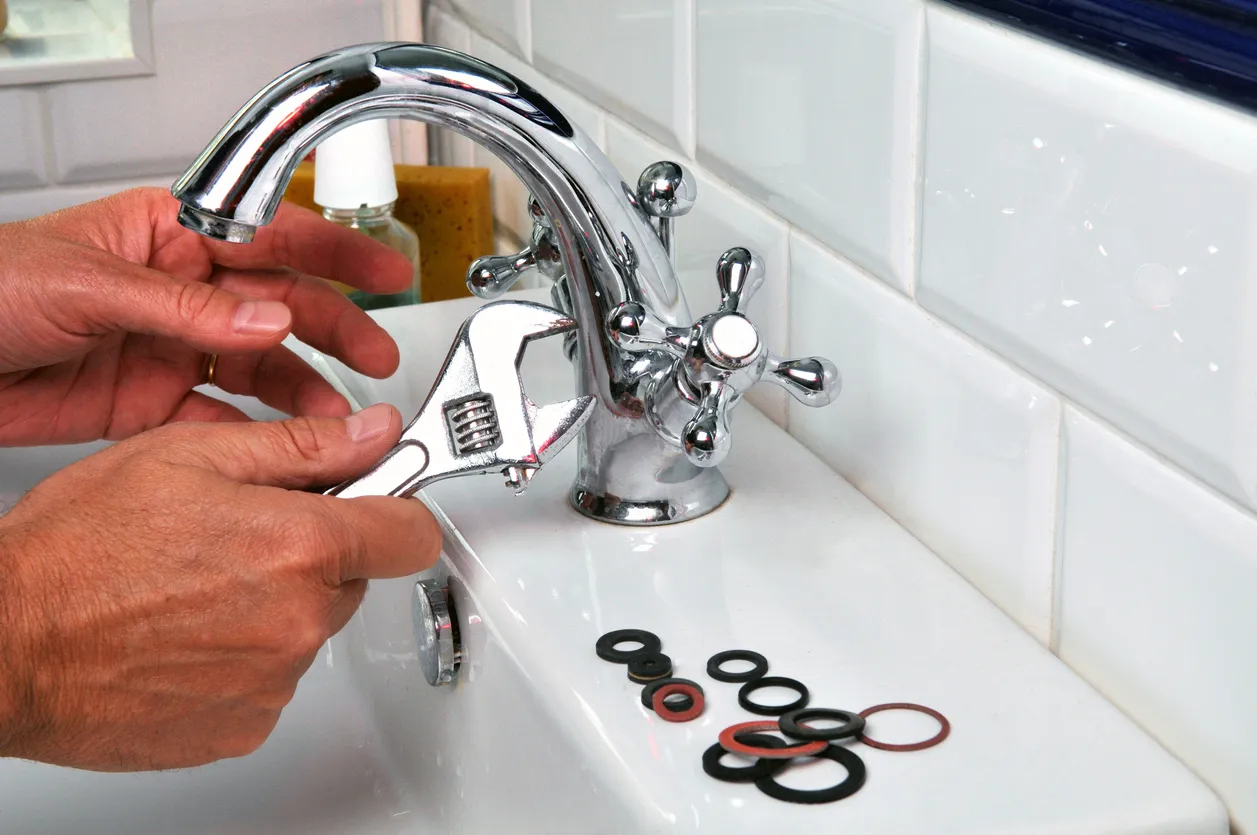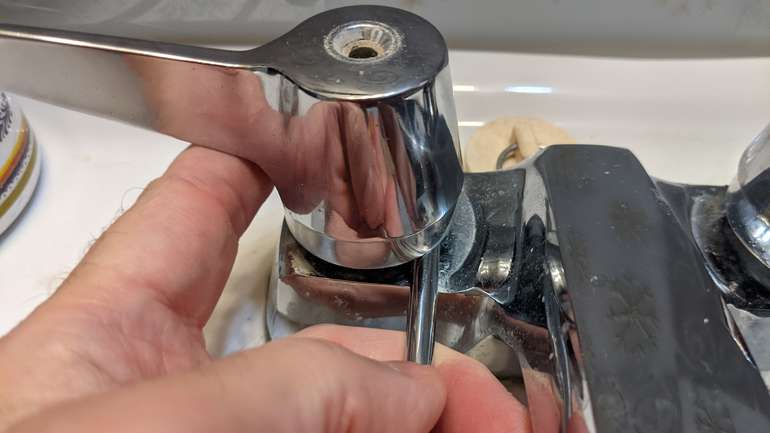This article following next involving Why Is It Important To Fix Your Leaking Tap/Faucet? is quite captivating. Don't miss it.

Leaking taps might feel like a minor trouble, but their effect surpasses simply the inconvenience of the noise. From drainage to sustaining unnecessary monetary expenses and wellness risks, neglecting a leaking faucet can bring about numerous repercussions. In this write-up, we'll look into why it's crucial to address this common house concern quickly and efficiently.
Wastage of Water
Environmental Impact
Trickling faucets add considerably to water wastage. According to the Epa (EPA), a single faucet dripping at one drip per secondly can throw away more than 3,000 gallons of water annually. This not only pressures water resources but additionally impacts ecosystems and wildlife dependent on them.
Step-by-Step Guide to Fixing a Dripping Faucet
Tools Needed
Prior to trying to repair a leaking faucet, collect the essential tools, consisting of a flexible wrench, screwdrivers, replacement components (such as washers or cartridges), and plumber's tape.
Usual Faucet Issues and Their Solutions
Determine the kind of tap and the particular problem triggering the drip. Common problems include worn-out washing machines, corroded valve seats, or malfunctioning O-rings. Refer to producer instructions or on the internet tutorials for step-by-step assistance on fixings.
Financial Prices
Enhanced Water Bills
Past the ecological effect, dripping taps can pump up water expenses substantially. The collected wastage over time translates right into greater utility expenditures, which can have been avoided with prompt fixings.
Prospective Residential Or Commercial Property Damages
In addition, extended dripping can bring about harm to components and surface areas surrounding the faucet. Water buildup can cause discoloration, deterioration, and even architectural problems if left unattended, causing extra repair expenses.
Wellness Issues
Mold and Mildew Development
The consistent presence of wetness from a trickling faucet produces a suitable setting for mold and mildew growth. These fungis not just compromise indoor air quality yet also posture wellness dangers, specifically for individuals with breathing problems or allergies.
Waterborne Conditions
Stagnant water in dripping taps can come to be a breeding place for bacteria and various other microorganisms, raising the threat of waterborne diseases. Pollutants such as Legionella microorganisms flourish in stationary water, potentially bring about serious ailments when ingested or breathed in.
DIY vs. Specialist Repair work
Advantages and disadvantages of DIY Fixing
While some might attempt to fix a trickling faucet themselves, do it yourself repairs feature their own set of obstacles. Without proper knowledge and tools, do it yourself efforts can intensify the concern or cause insufficient repair services, extending the problem.
Benefits of Hiring a Professional Plumber
Employing a specialist plumber ensures that the underlying reason for the leaking faucet is attended to properly. Plumbing professionals have the knowledge and tools to diagnose and fix tap problems successfully, conserving time and reducing the threat of additional damage.
Ecological Duty
Private Contribution to Conservation
Taking obligation for fixing dripping faucets straightens with more comprehensive efforts towards water preservation and environmental sustainability. Every individual's activities jointly make a substantial influence on preserving precious sources.
Sustainable Living Practices
By focusing on timely repair work and taking on water-saving behaviors, individuals add to sustainable living methods that benefit both existing and future generations.
Safety nets
Normal Maintenance Tips
To stop trickling faucets, do regular maintenance such as cleaning up aerators, examining for leakages, and replacing damaged components immediately. In addition, think about mounting water-saving devices or upgrading to a lot more reliable components.
Importance of Prompt Repairs
Resolving leaking taps as soon as they're discovered avoids further water wastage and possible damages, inevitably conserving both water and money in the long run.
Impact on Property Value
Perception of Well-Maintained Residential Or Commercial Property
Maintaining a home in good condition, including dealing with upkeep problems like trickling taps, enhances its viewed worth and value amongst potential purchasers or lessees.
Impact on Resale Worth
Properties with well-kept plumbing components, including faucets, command higher resale worths in the property market. Resolving trickling taps can add to a favorable impression throughout building inspections and arrangements.
Final thought
Attending to a trickling tap exceeds simple convenience; it's a crucial step towards conserving water, minimizing economic costs, and securing health and residential or commercial property. Whether via DIY repair work or expert assistance, taking action to fix leaking faucets is a little yet impactful method to advertise responsible stewardship of resources and contribute to a much healthier, more sustainable future.
How to Fix a Leaky Faucet: Step-by-Step Repair Guide
A leaky faucet may seem like a simple annoyance, but if it's not fixed promptly, that leak could cost hundreds to potentially thousands. From water damage to mold, mildew, and high water bills, even a tiny leak can be catastrophic if left unattended. Damage like this can even affect the overall value of your home, so it's important to take the right approach for leaky faucet repair. You may need the help of a plumber in some cases, but we've got a few tips you can try on how to fix a leaky faucet before calling the pros.
Four Faucet Types
When you're learning how to fix a leaky faucet, the first step is knowing what kind of faucet you're working with! There are four common types.
Cartridge Faucets
Cartridge faucets come in one- or two-handled varieties. In one-handled cartridge faucets, hot and cold water combines in a single cartridge. In the two-handled versions, hot and cold water are controlled separately and mixed in the faucet.
Ball Faucets
Ball faucets have a single lever you push up and down to adjust the pressure and rotate to change the temperature. A slotted metal ball controls the amount of water allowed into the spout.
Compression Washer Faucets
They're the oldest type of faucet, but they're still used in many homes — especially older ones. Compression faucets have two separate handles that, when turned, raise or lower the washer that seals a water valve. This valve stops water from flowing through the faucet when it is turned off.
Disc Faucets
Disc faucets rarely need to be repaired due to their maintenance-free design. The water flow is controlled by two discs — the upper one raises and lowers against a fixed lower disc, creating a watertight seal. If your disc faucet starts leaking, you may need to replace the seals or clean residue buildup from the inlets.
Fixing a Leaky Faucet
Step 1: Turn Off the Water
Whether you're learning how to fix a leaky bathtub faucet or how to fix a leaky kitchen faucet, always turn off the water supply to your working area when you're fixing a leak. The last thing you want is a flood added to your list of things to fix.
Look for the shutoff valves below your sink or around the tub and turn them clockwise to stop the water flow. If your faucet doesn't have shutoff valves, you may need to turn off the water for the whole house. Check to make sure it's off by turning the faucet on. If nothing comes out, you're ready to start the repair.
Step 2: Take Apart the Faucet
How you disassemble your faucet depends on the type of fixture you have. You can use a flathead screwdriver to remove the caps on top of the handle or handles for cartridge and compression faucets. Inside, you should see handle screws. Unscrew these with a screwdriver to remove the handle.
Disc- and ball-style faucets will typically have an inlet screw near the handle, and removing that will reveal the interior of the faucet.
Detach the Valve Stem
For cartridge- and compression-style faucets, you'll see the inner valve stem or cartridge once you remove the faucet handles. If you have a compression faucet, unscrew the brass valve stem. If you have a cartridge faucet, pull out the cartridge. If your cartridge has been in place for a while, it may require some tools or extra force to remove it due to mineral deposits.
Examine and Replace Parts
Once you've removed the parts, check them out to confirm what needs to be replaced. You may see corroded rubber washers, O-rings, stems, or cartridges. On a ball-style faucet, check the seats and springs for damage.
If you need to repair a leaky disc faucet, check the inlet and seals on the lower disc.
Once you determine what parts must be replaced, visit your local hardware store. Bring the damaged parts with you to ensure you can purchase the correct components to replace them.
Clean Valves and Faucet Cavity
If you've removed a stem or cartridge, you may notice mineral buildup in the faucet's threads. Use white vinegar to clean the valve seat by soaking it for a few minutes, then scrub it away with a soft toothbrush and rinse with warm water. You can also clean the interior of the faucet in the same way.
Reassemble the Faucet
Once your faucet is cleaned and the required parts have been replaced, it's time to reassemble it. Put the pieces back together and slowly turn the water supply back on. Doing this slowly is crucial because too much initial water pressure can damage the new hardware you've just installed.
https://homewarranty.firstam.com/blog/how-to-fix-leaky-faucet

We were shown that editorial on How to Fix a Dripping or Leaky Faucet from a buddy on our other web blog. Enjoyed reading our posting? Please quickly share it. Help other people check it out. Thank-you for taking the time to read it.